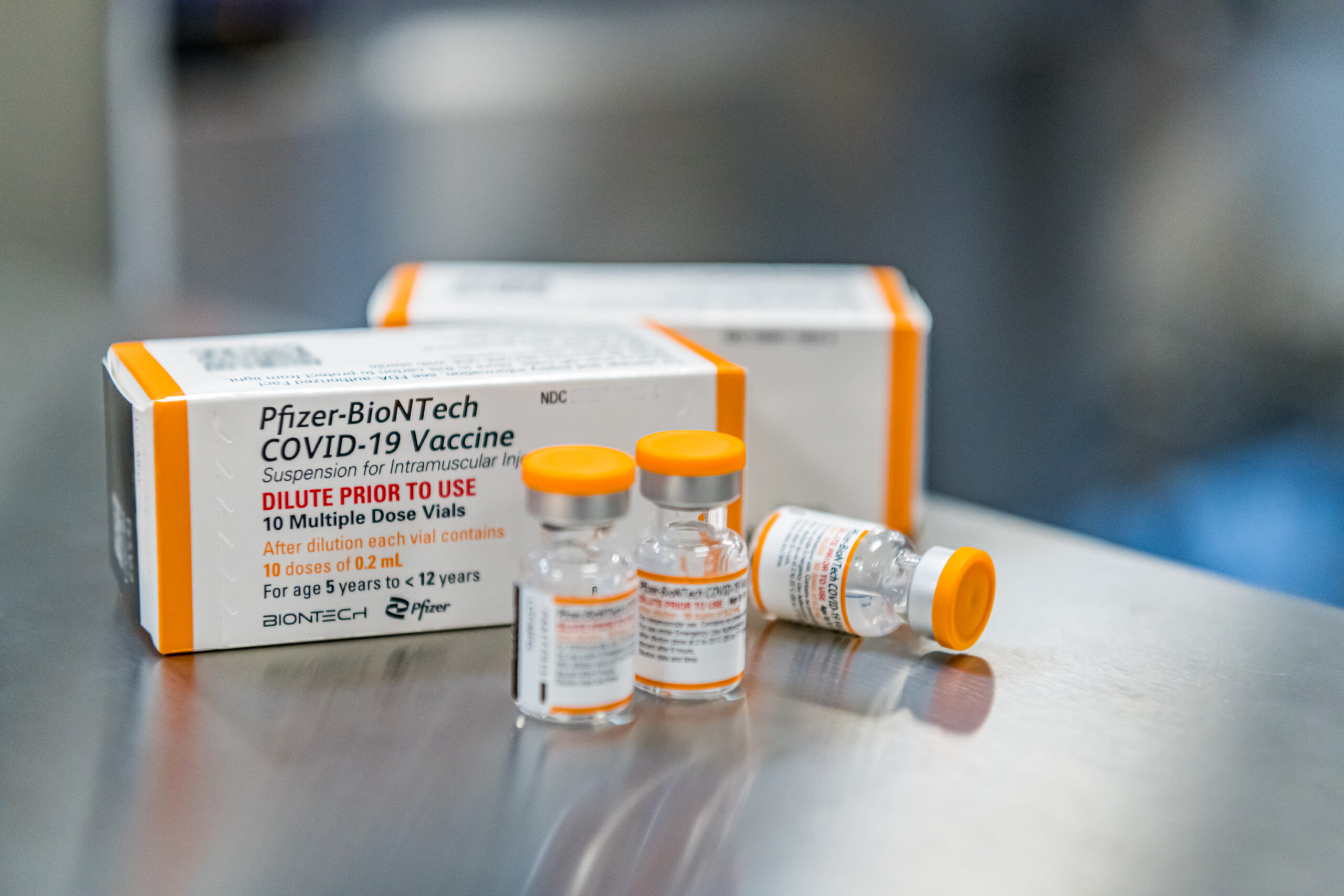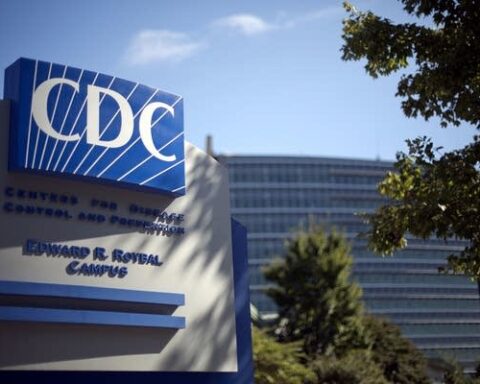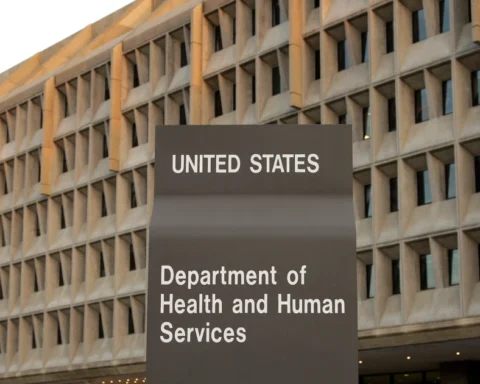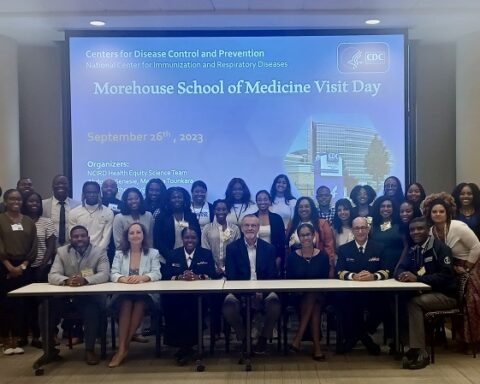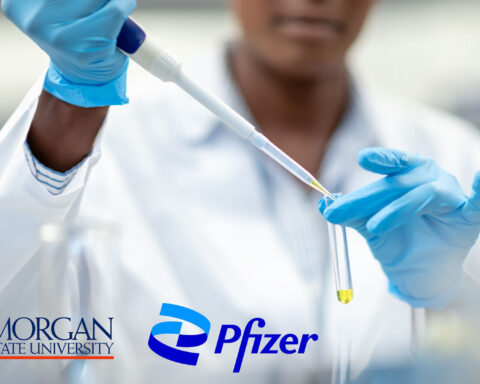Millions of child-size doses of Pfizer’s Covid-19 vaccine are being shipped from the company’s facilities to distribution centers across the country — ready to go out to pharmacies and pediatricians’ offices, the Biden administration said Monday. They’re just waiting for the OK from the US Centers for Disease Control and Prevention, whose independent advisers will vote Tuesday on whether to recommend Covid-19 vaccines for 5- to 11-year-olds.
The Advisory Committee on Immunization Practices (ACIP), the independent group of experts who advise the CDC, meet to take this second-to-last regulatory step before the final decision goes to CDC Director Dr. Rochelle Walensky. If the panel recommends the vaccine for 5- to 11-year-olds, and Walensky signs off on the recommendation, children in this age group will be allowed to start getting shots.
About 28 million kids would be newly eligible, and for some parents and pediatricians, a decision can’t come soon enough. Children now make up a disproportionate number of new Covid-19 cases, according to a report published Monday by the American Academy of Pediatrics — accounting for a quarter of all the new cases last week.
The US Food and Drug Administration authorized Pfizer’s vaccine for this younger age group on Friday, giving the company the distinction of having the first emergency use authorization for a Covid-19 shot for younger kids in the United States. The FDA said the benefits of the vaccine outweigh the risk to children.
At the CDC meeting that runs from 11 a.m. to 5 p.m. ET, Pfizer will present its data to the advisers in the morning.
In briefing documents it submitted to the FDA, Pfizer says its clinical trial showed the vaccine provides 90.7% protection against symptomatic disease among this age group — at one-third the dose of what people 12 years and older get. The company hopes the smaller dose will reduce any potential side effects.
In the afternoon, CDC scientists will present information about possible side effects, and will also discuss the overall need for a Covid-19 in children. Nearly 101,000 more children tested positive for Covid-19 this past week alone, according to the American Academy of Pediatrics report.
While Covid-19 cases have been declining, including among children, the number of kids with Covid-19 is still considered “extremely high,” according to the AAP. On Friday, immediately after the FDA authorized the vaccine, FDA acting commissioner Dr. Janet Woodcock urged parents to get their children vaccinated as soon as they can.
“Tragically, Covid-19 was among the top 10 leading causes of death for children 5 through 11 years of age in the US,” Woodcock said.
According to the CDC, 172 children ages 5-11 have died of Covid-19 as of Monday. In this age group, there have been more than 8,300 Covid-19 related hospitalizations through September of this year, and about 1.9 million cases.
The CDC will also walk the committee through the vaccine’s safety data, including the very small risk for myocarditis — an inflammatory heart condition. It’s a condition that’s been seen among some adolescents and adults who got the Pfizer/BioNTech and Moderna vaccines.
Dr. Grace Lee, the chair of the committee, told CNN while data is limited, the surveillance systems in place are doing a good job picking up on vaccine safety signals. She said the CDC is also doing a long-term study of people who develop myocarditis after vaccination.
Dr. William Schaffner, the chair of the department of preventative medicine at Vanderbilt University School of Medicine and a committee liaison who does not vote, said he thinks a couple voting members may voice concern about myocarditis, but he thinks the committee will vote overwhelmingly in favor of the vaccine.
Noting that generally myocarditis occurs less often in this younger population, Schaffner said he thinks that the theoretical risk of myocarditis is outweighed by the benefits of the vaccine.
“It outweighs it enormously,” Schaffner told CNN. “I think there isn’t any doubt.”
Lee said the committee members will have to make a decision about the vaccine for children even though they don’t have all the data about the impact of Covid-19 on children. For example, it’s unclear what the impact of long-haul Covid-19 is on children or the full impact of missing school when children are out sick with Covid-19.
“I think decision making under uncertainty creates many challenges,” Lee, a professor of pediatric infectious diseases at Stanford University, told CNN. “For much of the pandemic, what we’ve seen ACIP do is struggle with the data that exists and the data we would like to have.”
But she thinks ultimately, a decision has to be made.
“Not making a decision is in and of itself a decision,” Lee said.
The CDC’s advisers will also discuss potential ways to implement the pediatric vaccine program, as well as which children specifically should get the shot.
Schaffner said there could also be a discussion about focusing the vaccine on children with underlying health conditions, but he doesn’t think that idea would go very far since many children who have been hospitalized or had long-Covid, or a serious condition related to Covid called multisystem inflammatory syndrome (MIS-C), did not have any underlying conditions.
“At the end of the day, we will get to endorsing this vaccine and recommending its use in children ages 5-11, but I think there will be a little bit of this discussion off to the side,” Schaffner said. “I think the vote will be overwhelmingly in favor. I can’t predict that it will be unanimous.”
The Biden administration has been making plans to vaccinate as many children as quickly as possible as soon as the vaccine is authorized. The administration said it has contracted with Pfizer to get enough supply to vaccinate all the kids in this age group. The administration has also been assisting more than 25,000 doctors’ offices, pharmacies, community health centers and rural health clinics to administer the shots.
There is still the outstanding question about how many parents will get their children vaccinated. Pfizer’s vaccine is already authorized for kids 12 to 15, and approved for people 16 and older, but preteens and teens are the least vaccinated age group.
As far as 5- to 11-year-olds, a Kaiser Family Foundation survey released last Thursday found that the majority of parents said they would not get their kids vaccinated right away. About a third of parents with kids in this age range would wait and see how other kids did with the shot before getting their own kids inoculated, but experts say parents should not wait.
“As a parent, if I had young children in this age group, I would get them vaccinated now,” FDA’s Woodcock said Friday. “I would not want to take the risk that they would be one of the ones who would develop long Covid, who would develop multi system inflammatory syndrome, or have to be hospitalized from the virus.”
Vaccinations aren’t just about protecting the individual, Woodcock said. Vaccinations can help protect the community.
“One of the ways we can make that happen is by diminishing transmission through all age groups,” Woodcock said. “So, I think the recommendation would be that we continue to vaccinate children.”

